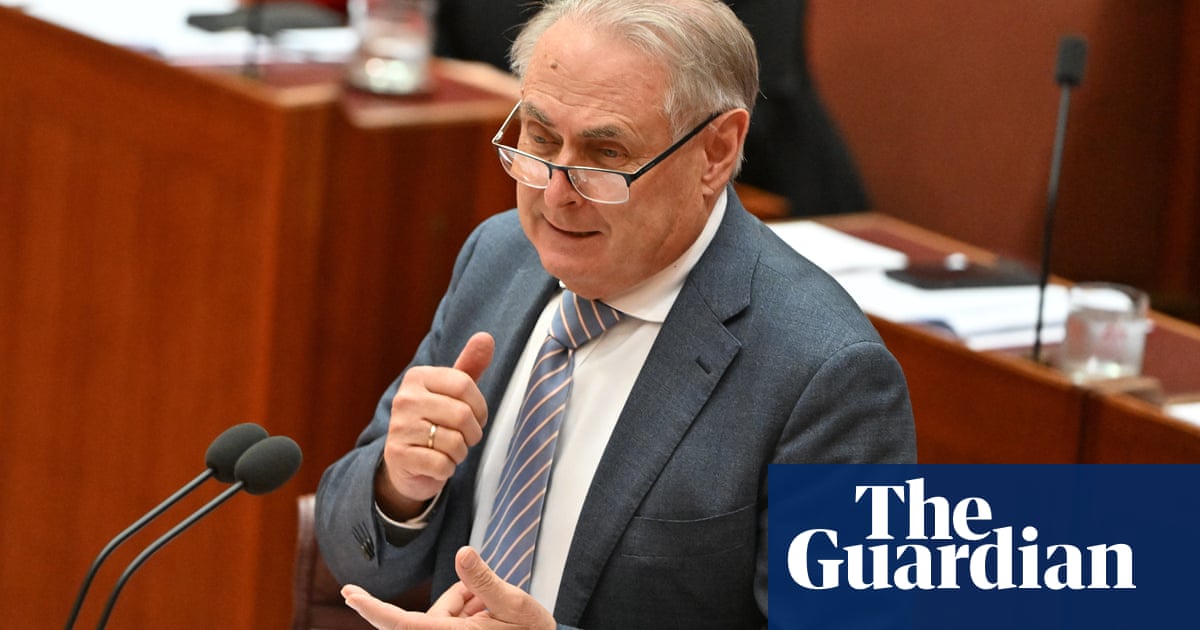
Australian exporters are starting to see benefits from the “de-escalation” of tensions with China, the trade minister, Don Farrell, said on the eve of crucial talks in Beijing.
Farrell will arrive on Thursday to press for an end to restrictions on a range of Australian exports – including lobster, red meat and wine – in the latest step to “stabilise” the relationship with Australia’s biggest trading partner.
It will be the first visit to China by an Australian trade minister since Simon Birmingham travelled to Shanghai in November 2019. Farrell follows in the footsteps of the foreign affairs minister, Penny Wong, who visited in December 2022.
In an interview before his trip, Farrell said he would raise all of the outstanding trade impediments and he was “hopeful of a good reception” from the Chinese commerce minister, Wang Wentao.
“I don’t think this will be a big bang and that everything’s going to be resolved overnight,” Farrell said in what appeared to be an attempt to manage expectations.
“The problems didn’t occur overnight, they won’t be resolved overnight.”
Farrell – who held a video conference with Wang in February – said the Australian government was not about to offer policy concessions, including on national security problems.
But Farrell said his “persistent” approach of pursuing dialogue to work through each trade impediment was starting to bear fruit.
That included China’s recent agreement to launch an urgent review of hefty tariffs on Australian barley in return for a temporary suspension of Australia’s challenge at the World Trade Organization.
The Australian government hopes the barley review sets a template for ending the wine tariffs, which are also subject to a WTO challenge.
“We have got coal back in [to China], we have got cotton back in, we have got copper back in, and we’re down the track of resolving barley,” Farrell said.
“So the de-escalation of rhetoric is getting some results for various sectors. We want everything back to the way it was prior to the imposition of these impediments.”
The main event will be on Friday when Farrell and Wang co-chair bilateral talks known as the Joint Ministerial Economic Commission – the first time this grouping has met in six years.
after newsletter promotion
Farrell intends to use the occasion to invite Wang to visit Adelaide.
The trip will involve some symbolism, because Farrell’s visit coincides with the 50th anniversary of the first Australian business delegation to China.
Gough Whitlam’s trade minister, Jim Cairns, led that delegation in May 1973, shortly after Australia opened diplomatic relations with the People’s Republic of China in December 1972.
China is seeking to enter the regional trade pact known as the CPTPP, but Farrell said there had been “no shift in the Australian position” and he suggested that Beijing may not meet the high conditions required to join.
“Clearly, at the moment, the high standards that you’re required to meet under the CPTPP are not being met, because we would say they’re not currently complying with their existing obligations,” he said.
Farrell confirmed that he would raise the cases of detained Australian citizens Cheng Lei and Yang Hengjun during the talks with Wang. He indicated it would not be the first time he had raised consular cases with international counterparts.
“I was in Vietnam a couple of weeks ago, I raised with the Vietnamese prime minister the case of a couple of Australians on death row there,” he said.
“Not only do I want to raise it because I feel terribly for people who are in this situation, but I should raise it on behalf of the Australian government.”
The government continues to urge Australian exporters to diversify their trading relationships rather than becoming too reliant on a single market, such as China.
It is understood Farrell had a phone call with the European trade commissioner, Valdis Dombrovskis, on Monday to confirm both sides remained on track to conclude an ambitious free trade agreement with the EU by the middle of 2023.


